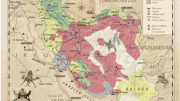The aid agency Oxfam has accused UK ministers of “denial and disarray” over an agreement to sell arms to Saudi Arabia, which could be used in Yemen.
The Saudi-backed Yemeni government is fighting against Shia rebels.
The UK government has faced repeated calls to ban weapons sales to Saudi Arabia amid concerns over international humanitarian law breaches in that war.
A government spokeswoman said it was satisfied the Saudi deals complied with the UK’s “export licensing criteria”.
Oxfam says the UK has switched from being an “enthusiastic backer” of the Arms Trade Treaty to “one of the most significant violators”.
The treaty sets international standards for the trade in conventional arms and seeks to prevent illegal arms trading.
Governments who sign up to it – such as the UK – are expected to review arms export contracts to ensure the weapons do not violate existing arms embargoes, will not be used for war crimes, human rights abuses or organised crime and will not be diverted for illegal use.
Oxfam will use the second conference of states party to the treaty in Geneva on Tuesday to criticise the government’s position on sales to Saudi Arabia.
Last year the British government approved more than £3bn worth of arms sales to Saudi Arabia. The United States approved £4bn worth and France almost £14bn.
Worldwide, the weapons trade is believed to be worth worth £1.3tn annually.
Competing forces are fighting for control of Yemen, in a power struggle with serious implications not just for the region, but the security of the West.
The battles are between several different groups, with the main fighting between forces loyal to President Abdrabbuh Mansour Hadi, and those allied to Zaidi Shia rebels known as Houthis, who forced Mr Hadi to flee the capital Sanaa in February 2015.
But Yemen’s security forces themselves have split loyalties, with some backing Mr Hadi, and others the Houthis and Mr Hadi’s predecessor – the still-influential Ali Abdullah Saleh.
Meanwhile, both President Hadi and the Houthis are opposed by al-Qaeda in the Arabian Peninsula (AQAP).
And the emergence in late 2014 of a Yemen affiliate of the jihadist group Islamic State, which seeks to eclipse AQAP, has further complicated the deadly ongoing scenario.
Yemen crisis: Who is fighting whom?
Penny Lawrence, deputy chief executive of Oxfam GB, will say that UK arms and military support are fuelling a “brutal war in Yemen, harming the very people the Arms Trade Treaty is designed to protect”.
She will add: “Schools, hospitals and homes have been bombed in contravention of the rules of war.
“The UK government is in denial and disarray over its arms sales to the Saudi-led coalition bombing campaign in Yemen.
“It has misled its own parliament about its oversight of arms sales and its international credibility is in jeopardy as it commits to action on paper but does the opposite in reality.”
‘Robust control’
She will also ask how the government can insist that other nations abide by a treaty it helped set up “if it flagrantly ignores it?”.
A British government spokeswoman said it took its arms export responsibilities “very seriously” and operates one of the most robust arms export control regimes in the world.
“The government is satisfied that extant licences for Saudi Arabia are compliant with the UK’s export licensing criteria.
“The key test for our continued arms exports to Saudi Arabia in relation to international humanitarian law (IHL) is whether there is a clear risk that those weapons might be used in a serious violation of IHL.
“The situation is kept under careful and continual review.”
Source: BBC



Be the first to comment at "Yemen crisis: Oxfam critical of UK-Saudi arms deals"